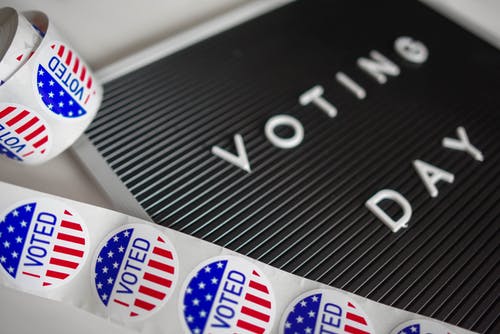
With the United States primary officially beginning, faculty are encouraging students to become active participants in the political process.
The Iowa caucus took place Feb. 3, New Hampshire’s primary was last Friday, and they will be followed this month by Nevada and South Carolina before Super Tuesday on March 3, which will distribute the delegates of 14 states, including Oklahoma.
Dr. Richard Johnson, professor of political science, said open primaries are vital to selecting candidates for the two major political parties. The system is relatively unique when compared to the systems employed by other democratic nations in the world, he said.
“The US system differs quite a bit from most other countries because, in most other countries, political parties are stronger than they are in the US, and so those tend to be done within the party, not necessarily trying to engage all of the citizens who will vote,” Johnson said.
The downside to an open primary is the amplification of extreme ideologies on either end of the spectrum, Johnson said.
“You tend to get more extreme candidates in the United States because the people who turn out in primaries tend to be the more conservative Republicans and the more liberal Democrats,” Johnson said.
Trae Trousdale, Student Government Association president, said without voting, it is hard to make your political ideology known to those in charge, so participating in the primary is especially important for those with unique perspectives.
“We represent a very distinct voice, and very unique situations aren’t represented in most districts. People in rural Oklahoma don’t have the experience, necessarily, of being at a school like OCU and being introduced to many diverse perspectives. For me to be able to vote back at home with this perspective is absolutely phenomenal,” Trousdale said.
Johnson said it’s important to do research into how each state goes about this process before voting day because different states have different rules and procedures. He said the largest difference is between the primary states and caucus states, which call for different levels of engagement.
“A caucus requires a lot more participation. People have to meet in their various precincts, and the people will begin to gravitate towards specific candidates. The Iowa caucus has a rule that you have to have at least a 15% threshold to be eligible for delegates. So, a bunch of people meet, everyone listens to a pitch for each of the candidates, and then they go and stand. If you choose a candidate who gets less than 15% support, you get to walk toward another candidate until all the votes are distributed,” Johnson said.
Johnson said Oklahoma is different in that voters register with a specific political party and then participate in an anonymous vote by ballot, which then distributes the delegates. He said the internet is the best way to find out the specifics of any state.
“Go to the Oklahoma Board of Elections because they will explain exactly what you need to request, which you can do by email now. You can do that by county level or even state level now,” Johnson said.
Johnson said students that prefer not to vote through absentee ballot can also register in Oklahoma but need to do so before election cut-off dates.
“Students can register to vote in Oklahoma rather than their home state, but the cut off for voting in the primaries has already passed. Thirty days before an election is usually the cut off, and Oklahoma votes on Super Tuesday,” Johnson said.
Trousdale said regardless of the state you vote in for national elections, being an active participant in a community’s local elections is vital to making an immediate difference in people’s lives.
“A lot of times, young voters don’t take advantage of the systems that allow their voices to be heard. Luckily, I am only 30 minutes from my home, so I have the privilege of maintaining relationships with the representatives and senators right down the street at the Oklahoma Capitol, as well as go back and vote on city council and school board elections,” Trousdale said. “Absentee ballots allow people not in this position to still have an active role in their community. Just because you’re here on campus, that doesn’t mean you have forfeited your designation of citizenship at home.”
Trousdale said voting is the civic duty of every American citizen and should be taken seriously. He said the best way to fulfill that duty is to be active and be informed.
“The most helpful thing is staying educated. It’s very hard to make decisions when we just accept the status quo. It’s important to challenge what is being done. Questioning the system sharpens the system and keeps everyone on their toes. You always need to be voting for who aligns with your values, who you trust to lead, and not just who a poll says has the best chance,” Trousdale said.
The primary calendar can be found at 270towin.com, and the Oklahoma Board of Elections can be found at www.ok.gov/elections.


Leave a Reply